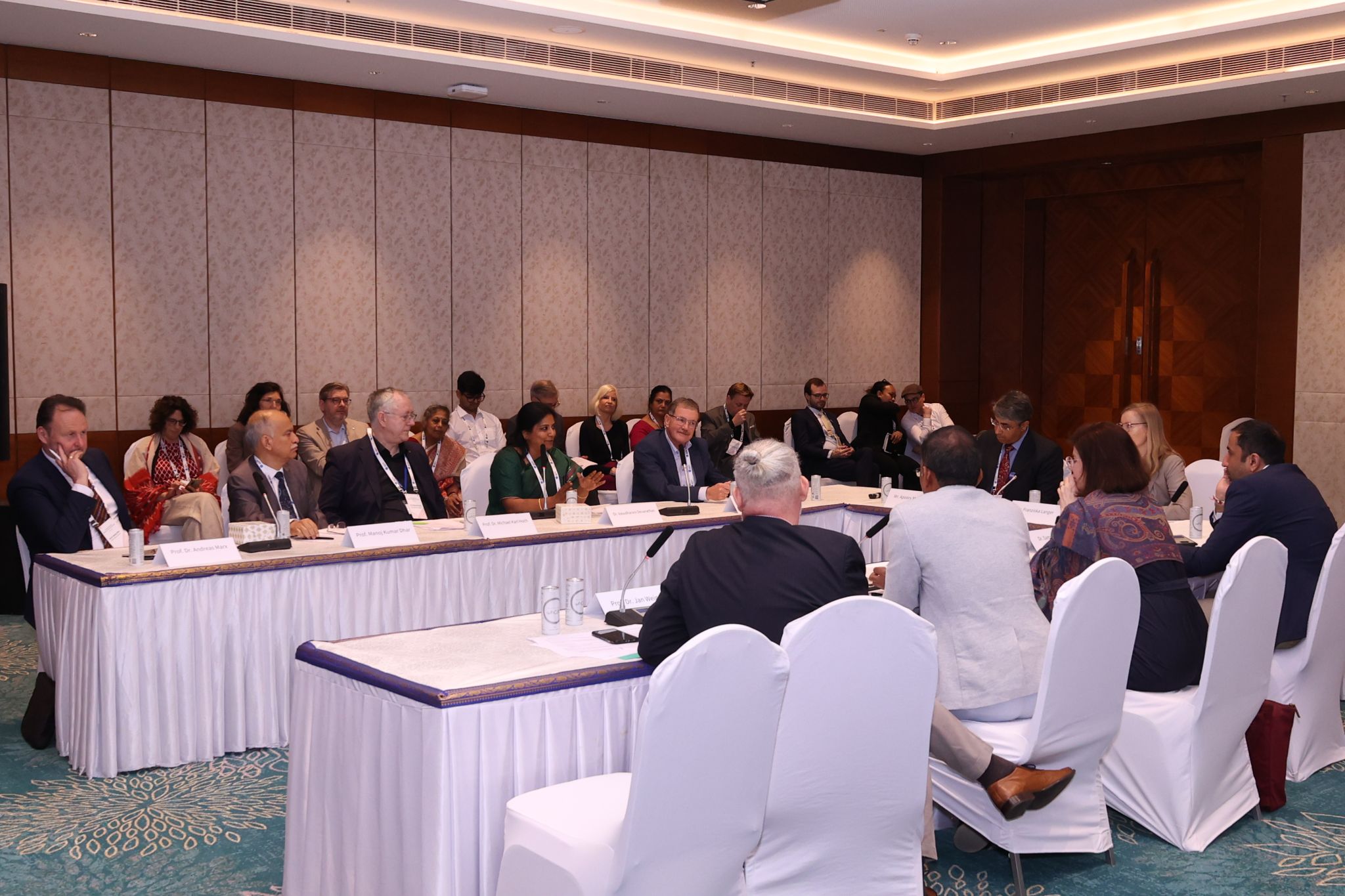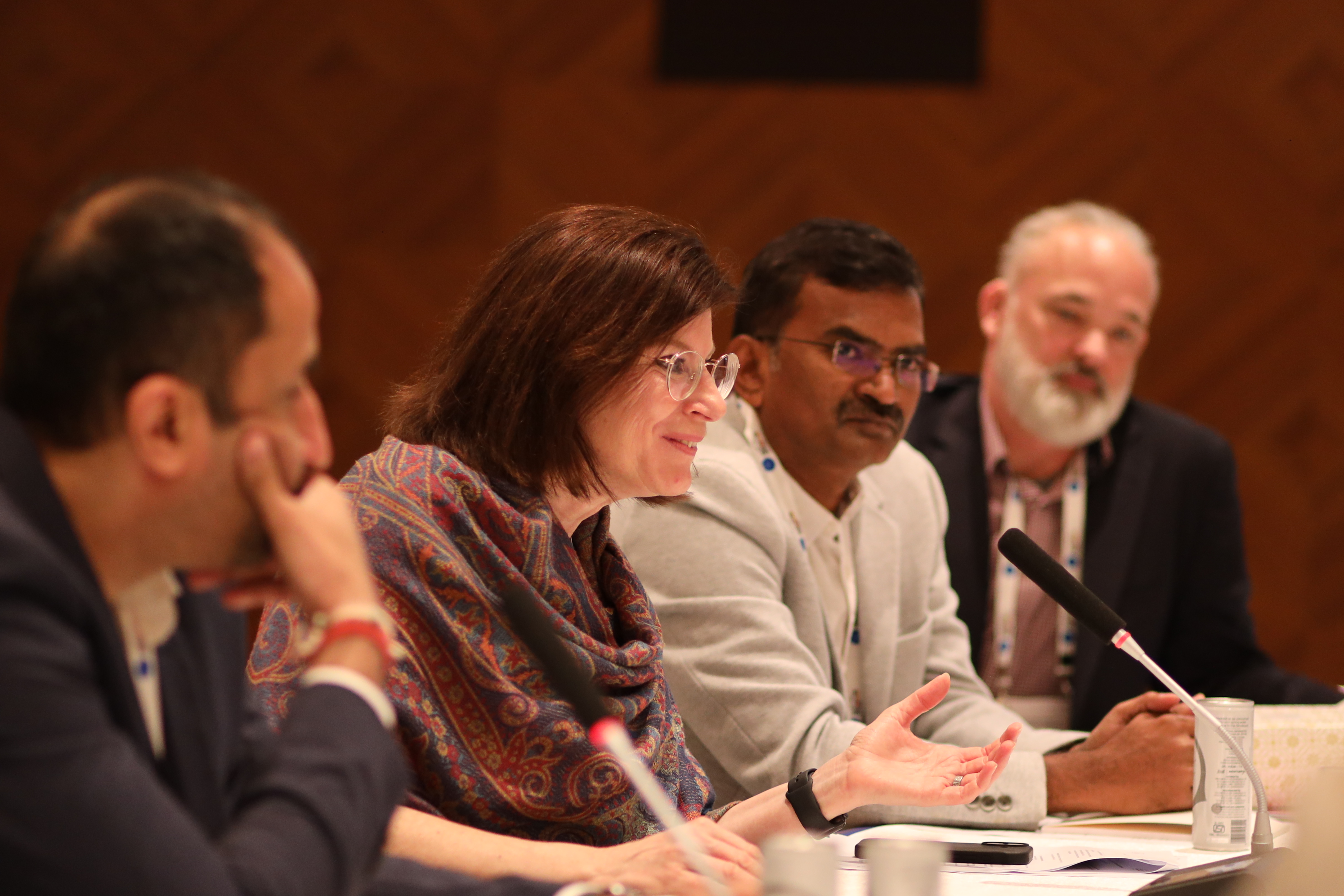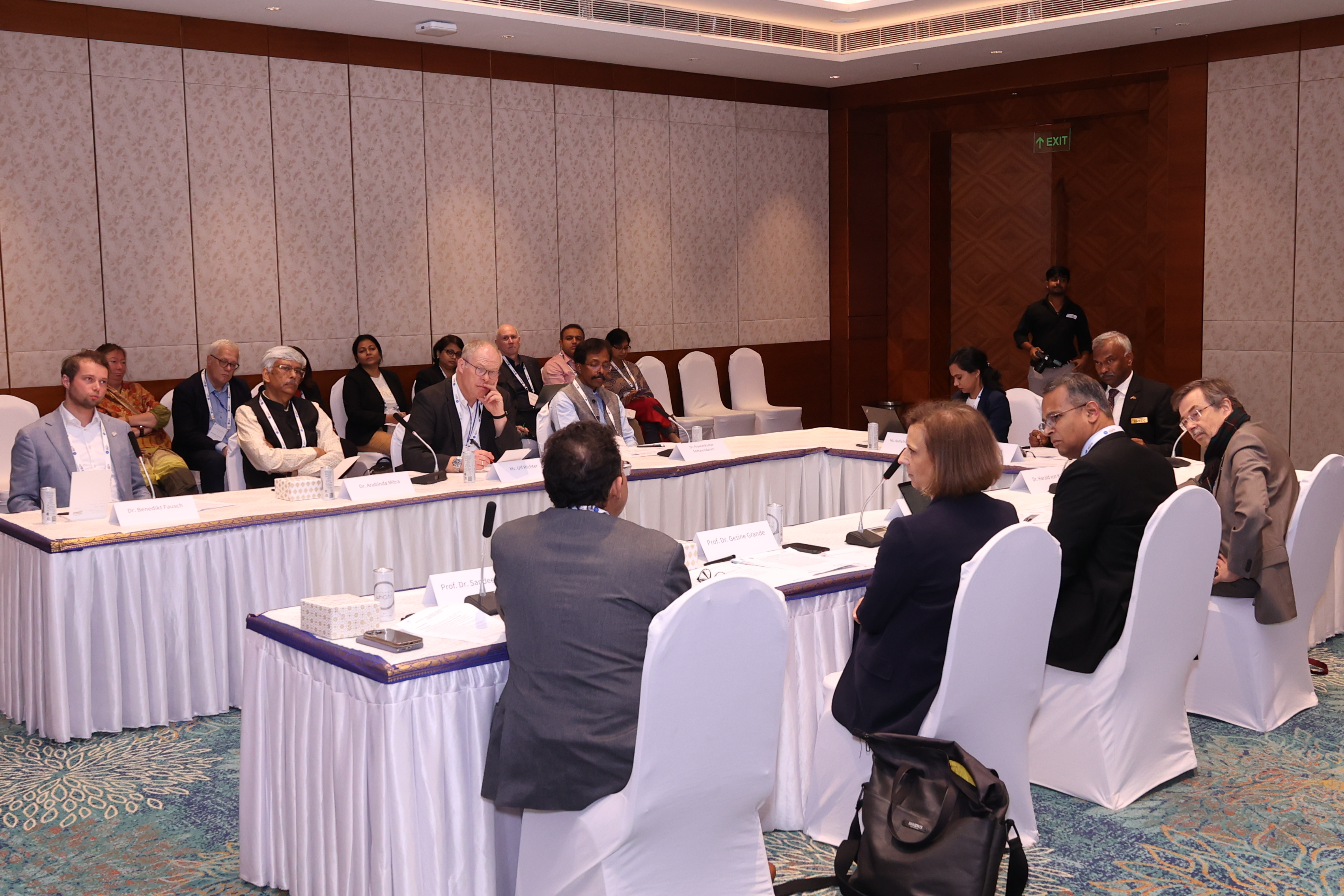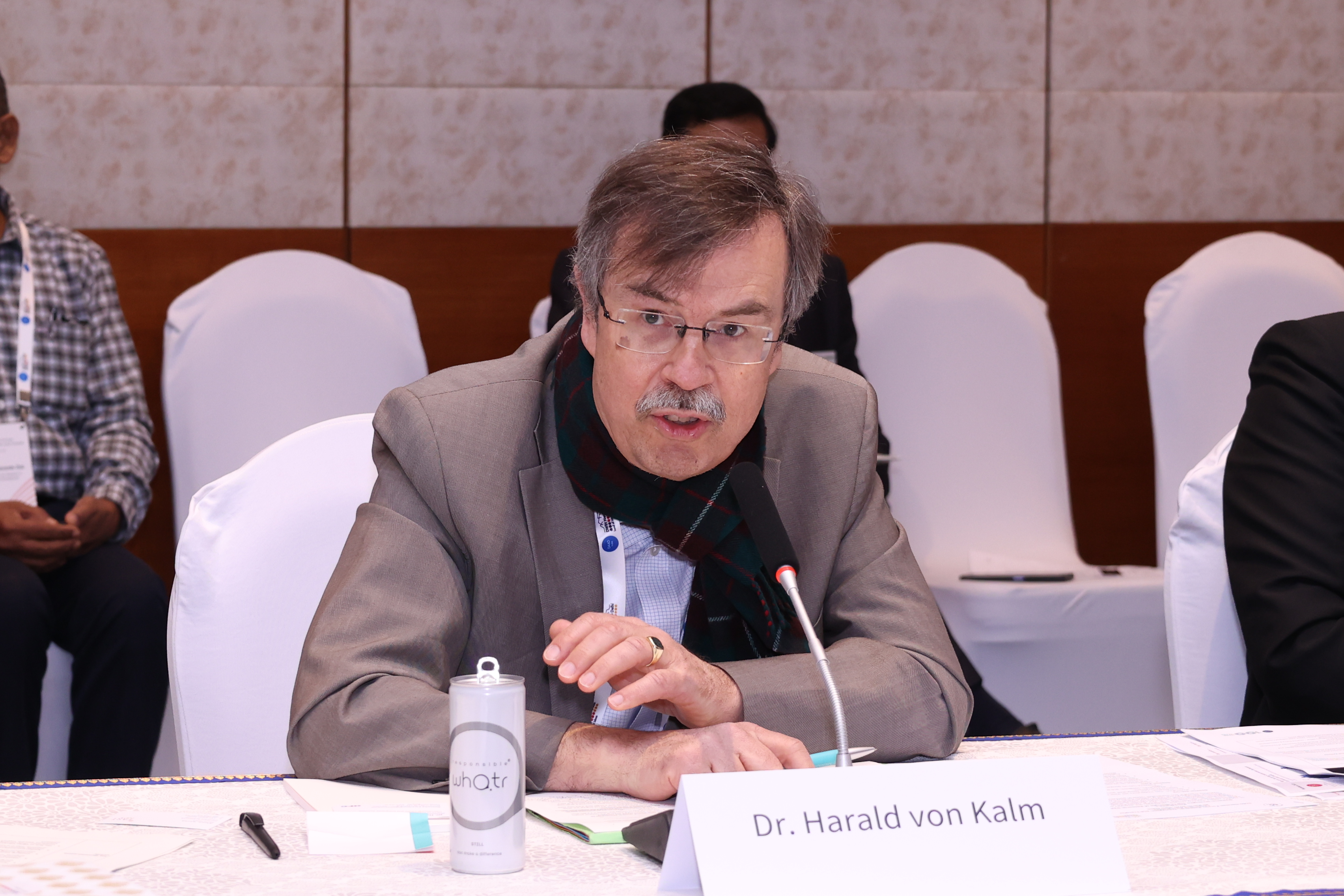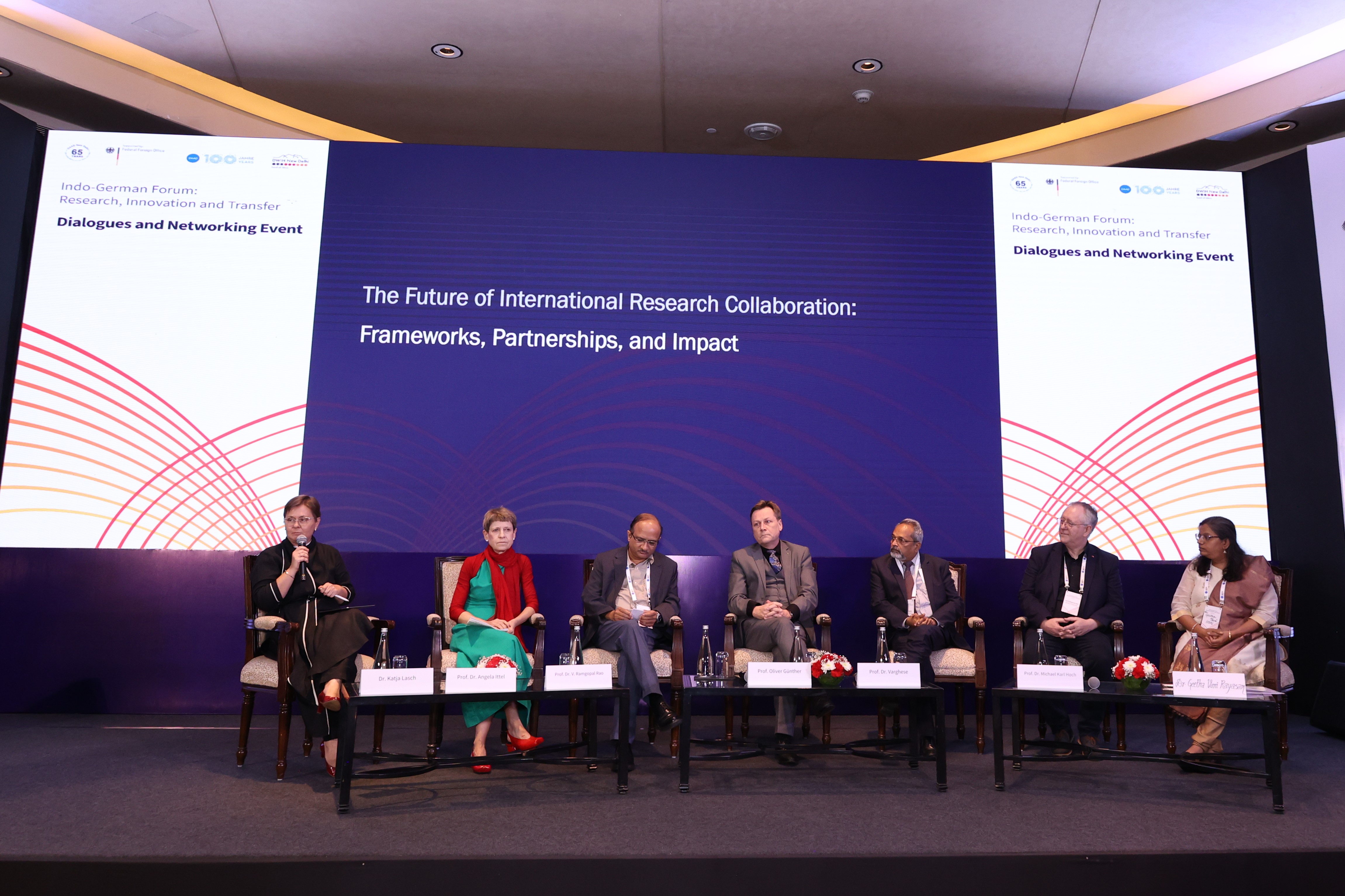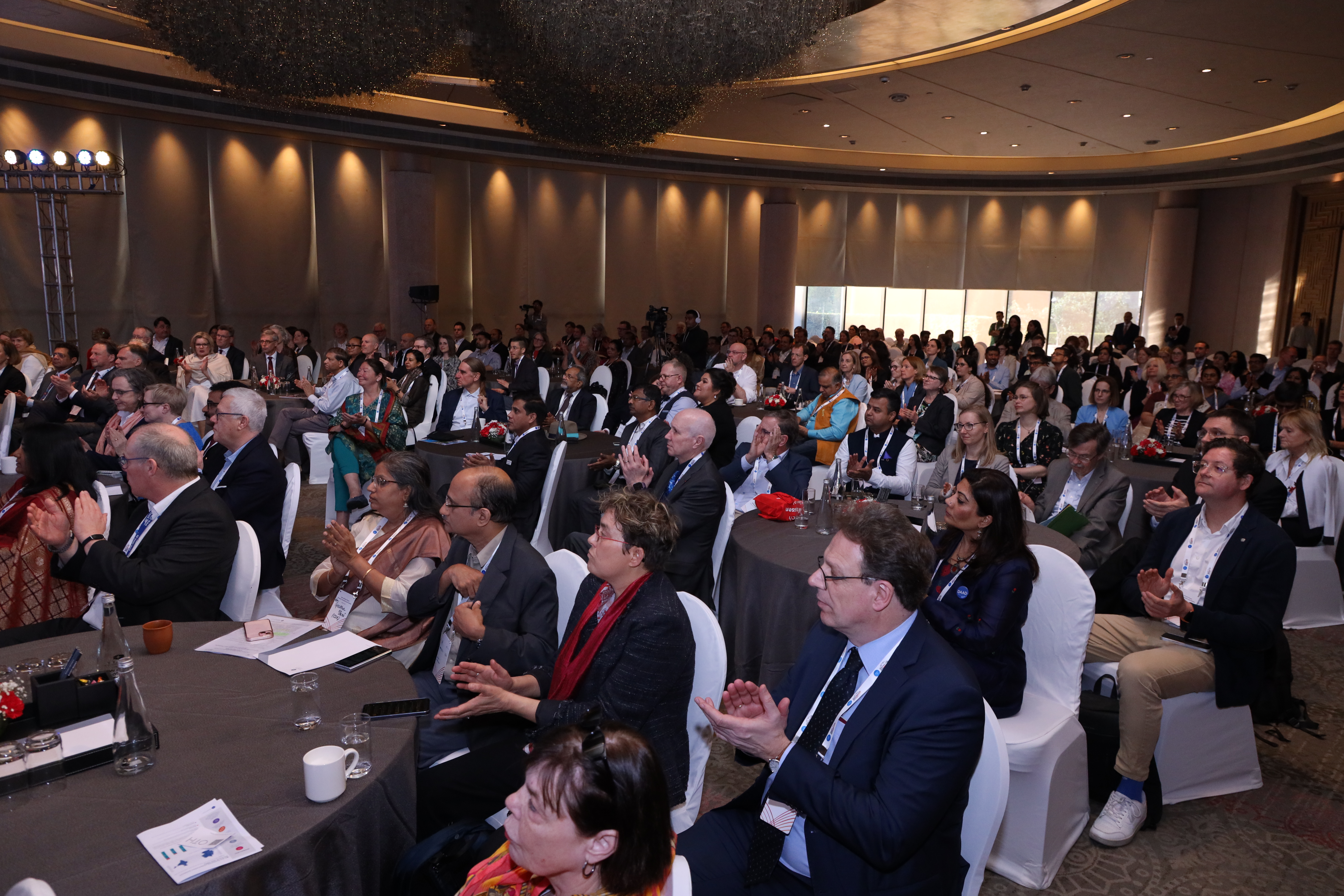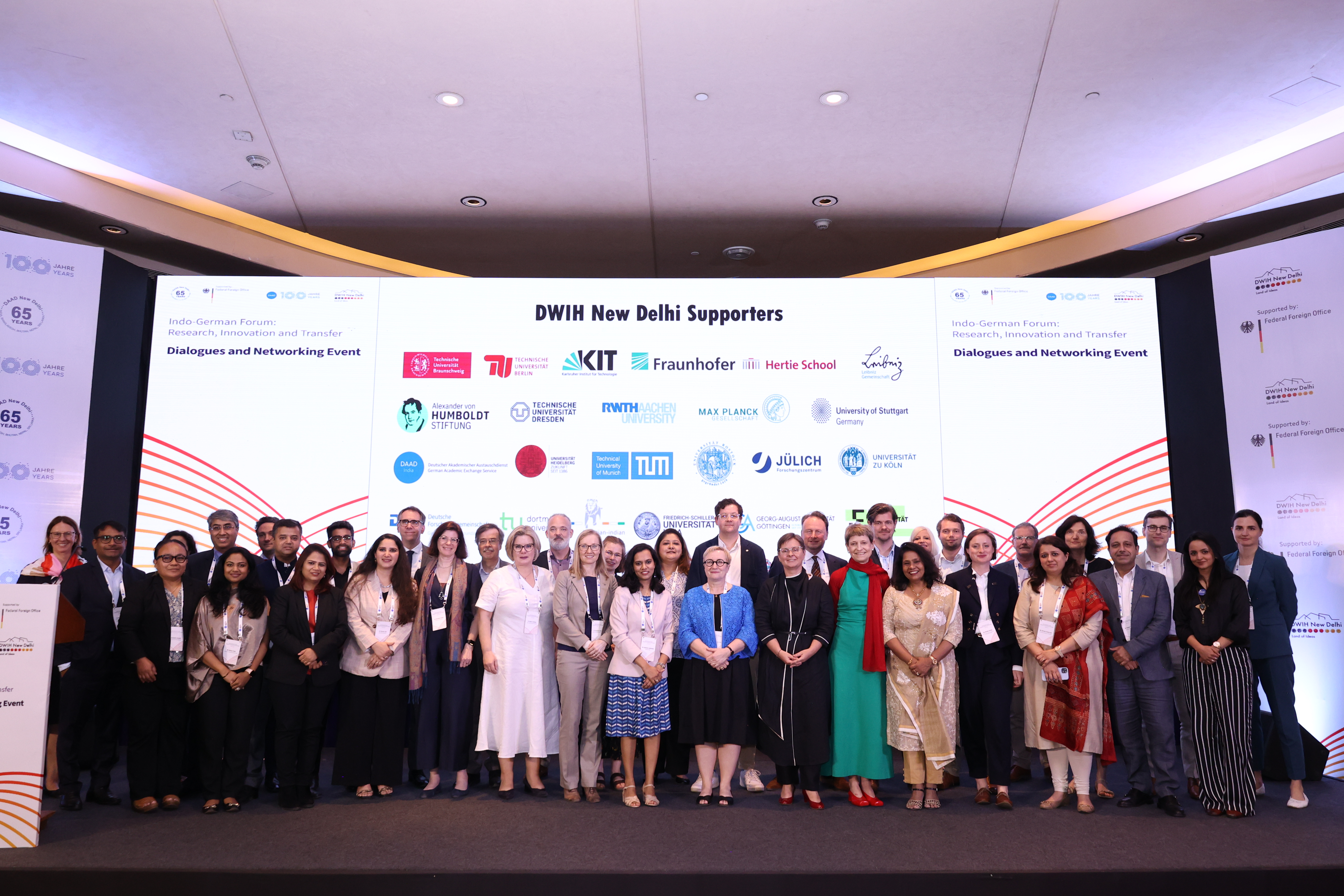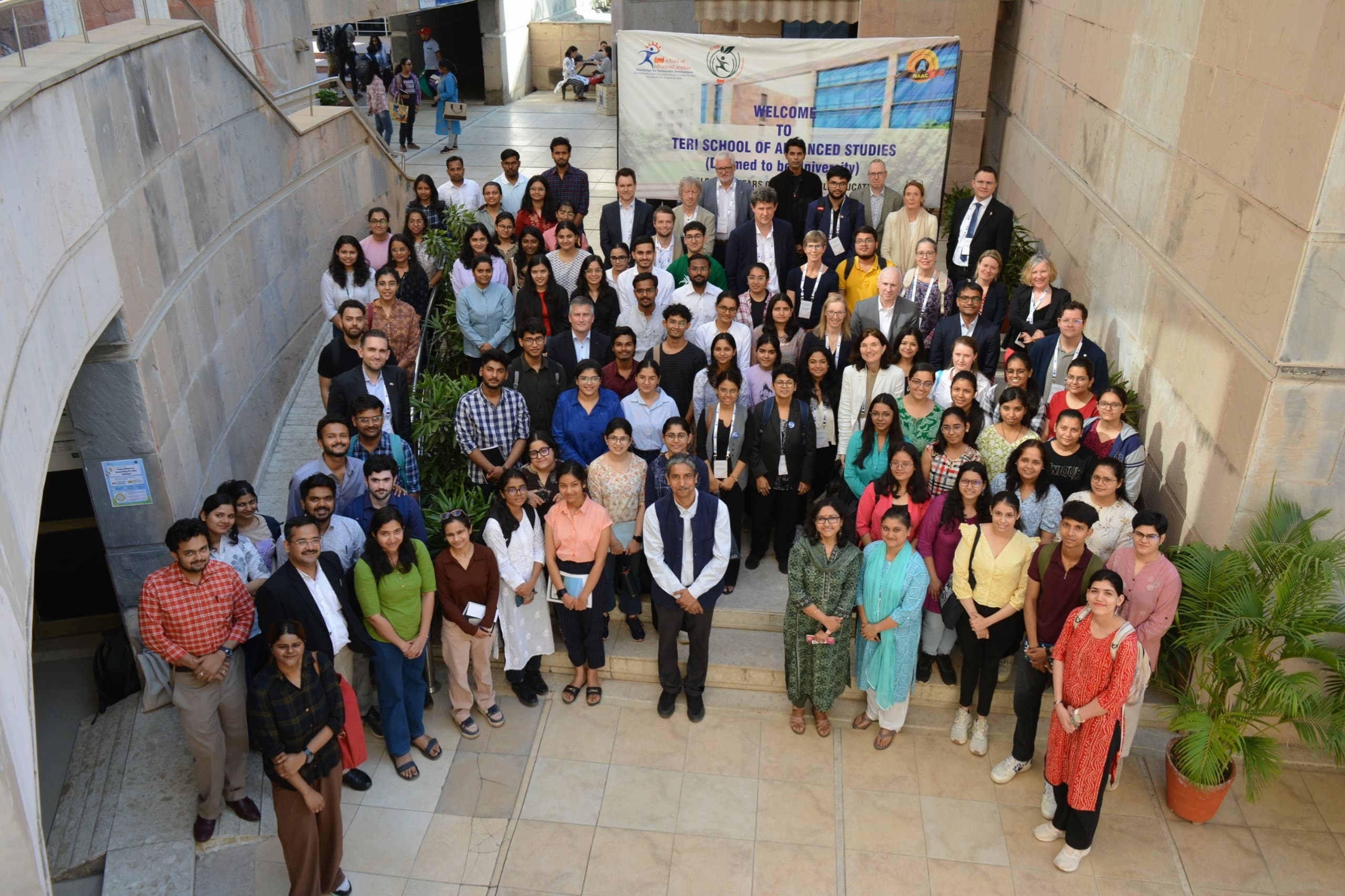DFG at the Indo-German Forum 2025
On March 20, 2025, The DWIH New Delhi hosted the Indo-German Forum: Research, Innovation, and Transfer, a landmark event that brought together key stakeholders in academia, research, and policy from both Germany and India. Organized with the support of leading institutions such as the German Academic Exchange Service (DAAD), the German Research Foundation (DFG), the Max Planck Society (MPG), and the Alexander von Humboldt Foundation (AvH), the forum underscored the growing strategic importance of Indo-German research cooperation.
Panellist during the Leadership Roundtable discussion on “Move – Cross-Border Research Careers”. L to R: Prof. Dr. Andreas Marx, Prof. Manoj Kumar Dhar, Prof. Dr. Michael Karl Hoch, Dr. Vasudharani Devanathan, Dr. Thomas Hesse, Apoorv Mahendru, Dr. Franziska Langer, Dr. Samrat Kumar, Dr. Christiane Haupt, Dr. Bramanandam Manavathi, Prof. Dr. Jan Weigand
© DWIH/DAAD
Strengthening Indo-German Academic Partnerships
The forum served as a platform to discuss institutional collaborations and science diplomacy, aiming to deepen ties between the two nations. With over 250 stakeholders present, including representatives from public bodies, funding agencies, universities, and research institutions, the event was a testament to the robust academic exchange between Germany and India.
A key highlight was the celebration of 100 years of DAAD and 65 years of its presence in India, reflecting Germany’s longstanding commitment to fostering academic collaboration with India.
Key Roundtable Discussions
The event featured high-level roundtable discussions on six pivotal themes, addressing challenges and opportunities in research systems, cross-border researcher mobility, structured exchange programs, equitable research partnerships, social sciences and humanities, and technology transfer.
Panel 1: Systems – Strengths and Challenges of Research Systems
Chaired by R. Madhan (Indo-German Science and Technology Centre), this panel focused on the evolving landscape of research funding structures and their impact on international collaborations. Discussions delved into policy frameworks, funding mechanisms, and the role of universities in fostering sustainable Indo-German partnerships. Dr. Harald von Kalm (Head of Department for International Affairs and Integrative Activities, DFG) provided insights into how funding structures can influence research sustainability and accessibility.
Panel 2: Move – Cross-Border Research Careers
Moderated by Dr. Franziska Langer (Director DFG Office India), this session explored the mobility of researchers, particularly PhD and postdoctoral scholars, between India and Germany. Notable contributions came from Dr. Thomas Hesse (General Secretary, AvH) and Dr. Christiane Haupt (Policy Officer for Cooperation with Asian Countries, MPG), who emphasized the need for balanced exchange programs and institutional support beyond financial assistance.
The forum also featured discussions on several other critical themes that shape Indo-German academic and research cooperation. These included:
- Education: Sustainable Structured Exchange Programmes
- Collaborate: Equitable Research Partnerships
- Horizon: Social Sciences and Humanities
- Innovation: Pathways for Technology Transfer
A short summary of the key discussion points will be made available here in the future.
Charting the Future of Research Collaboration
The forum concluded with a high-level panel discussion outlining a vision for future Indo-German research cooperation. Participants emphasized the need for a holistic approach, addressing systemic barriers to researcher mobility, promoting technology transfer, and ensuring inclusive research partnerships.
The Indo-German Forum 2025 reaffirmed the shared commitment of both nations to fostering knowledge exchange and innovation for a sustainable future.
Evening Dialogue and Networking: Strengthening Institutional Links
Following the day’s intensive discussions, the evening session at the Hyatt Regency in New Delhi provided a unique platform for deeper engagement among participants. A significant aspect of this session was the presence of representatives from over 80 German universities and universities of applied sciences, who contributed to dynamic networking opportunities. These representatives engaged in constructive dialogues with their Indian counterparts, exploring potential collaborations, mobility programs, and joint research initiatives. This engagement is expected to result in enhanced research cooperation, expanded mobility frameworks, and innovative joint projects that address global scientific challenges.
Following this event, the German delegates were invited to visit different Indian research institutions. There interactions with faculty and students took place to discuss research stays at German research institutions. Among the selected institutions were the TERI School of Advanced Studies, the Dr. B.R. Ambedkar Universität, the Shiv Nadar Universität and the Manav Rachna International Institute of Research and Studies.By bringing together key actors in academia, funding agencies, and government bodies, the Indo-German Forum 2025 set a strong foundation for future cooperation.
Further insights can be found here:
LinkedIn: LinkedInDWI(externer Link) LinkedInDAA(externer Link)
Facebook: FacebookDAA(externer Link)
Instagram: DAAD India (@daad.india) • Instagram-Fotos und -Video(externer Link)
